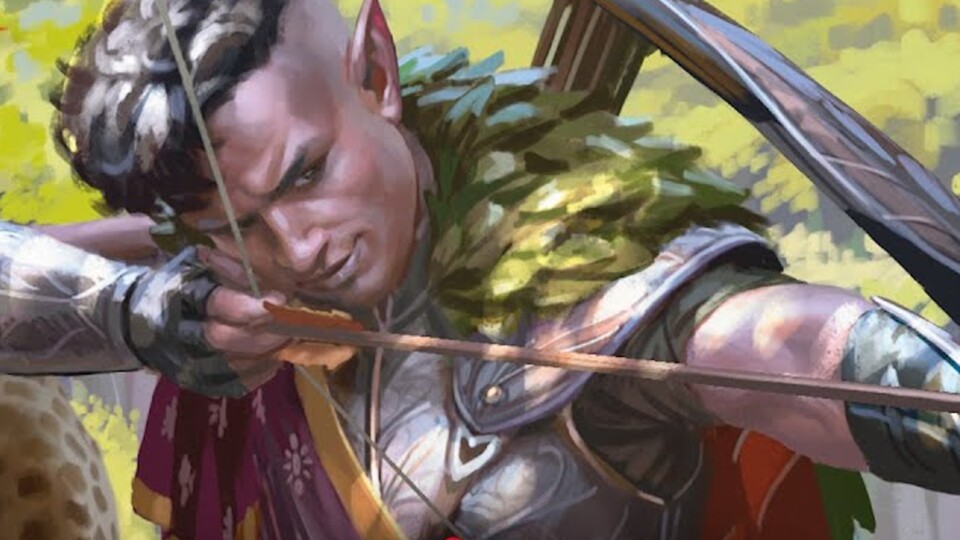
Wizards of the Coast introduces the Ranger’s new abilities.
Advertisement
According to the 5e Player's Handbook from 2014, rangers were long considered the weakest class in the entire game. Dungeons & Dragons to be revamped in 2024 and this means that many of the previously established rules will change. In particular, the classes will work a little differently with the release of the new player's handbook.
Now Wizards of the Coast has officially revealed what this means for the rangersFans are of course waiting for this with excitement, as there is hope that rangers will receive a significant buff. This happened, but many fans are still not satisfied.
Link to YouTube content
That has changed
Rangers already got the release of Tasha's Cauldron of Everything
some optional skills that have done the class good. So good, in fact, that many of these skills can now be found in the revised player's handbook. But there are also new and adapted skills for all rangers. Here are all the changes:
- Levels 1: Rangers can cast spells from the beginning, rather than later. They can also now swap one spell for another during a long rest. The spell
Sign of the Hunter
(originally Hunter's Mark) is now always prepared and can be cast twice per long rest without a spell slot. Like many other martial classes, rangers also get the new weapon mastery. Favored terrain has been removed. - Levels 2: With Skilled Exploration, rangers gain expertise in a skill and learn two languages. They can also choose from any combat style or gain two druidic cantrips.
- Levels 3: Primal Perception has been removed.
- Levels 6: The Vagabond feature increases the ranger's movement range.
- Levels 9: The ranger also receives two expertise points for any skill.
- Levels 10: Tireless allows the ranger to temporarily gain hit points and reduce exhaustion during a short rest. Stealth has been removed.
- Levels 13: At this level, concentration on Hunter's Mark can no longer be broken when the ranger takes damage.
- Levels 14: The ranger can become invisible as a bonus action. Vanish has been removed.
- Levels 17: The ranger gains advantage when attacking enemies that have the hunter's mark.
- Levels 18: Wild Sense has been simplified and gives the ranger blindsight.
- Levels 19: The ranger may choose an Epic Boon, a particularly powerful talent.
- Levels 20: Hunter's Mark deals 1d10 additional damage instead of 1d6.
In addition, the ranger's subclasses have been revised. The biggest changes have been made to the beastmaster. His animal companion should now be able to dish out more damage and take more punishment.


5:45
What is Pen&Paper? Our expert explains the basics
That is why there is criticism
Overall, all of these changes should make the ranger in the new version of D&D much more effective than he was ten years ago. However, fans are still confused as to why Wizards of the Coast continues to put so many obstacles in the way of the class. This is what bothers people the most:
- The most important is the new focus on Hunter's Mark. There is no getting around this spell now, as it is integral to the ranger's damage output from start to finish. While there is now the advantage of this spell no longer consuming spell slots, it still requires concentration.
- This means rangers cannot cast other concentration spells without first removing Hunter's Mark. Or, if they cast Hunter's Mark, they must drop other spells to do so.
- This now raises concerns in the community that this rule forces very one-sided rangers to continue to forego many spells completely because their entire character depends on Hunter's Mark.
In addition, the community is making fun of the new ability at level 20. Since only the dice roll is increased from 1d6 to 1d10, a ranger at the maximum level deals an epic two additional points of damage on average.
Of course, the new rules apply just as they do to the old ones: Nothing stops you from customizing them to your own gaming tableSo if you want to use Hunter's Mark without concentration, you can do so at any time. Especially since the new rules mean that it hurts less to cast the spell multiple times per fight and use other spells in between.
But what do you think? Would you have liked something more for the Ranger in D&D? Write it in the comments!